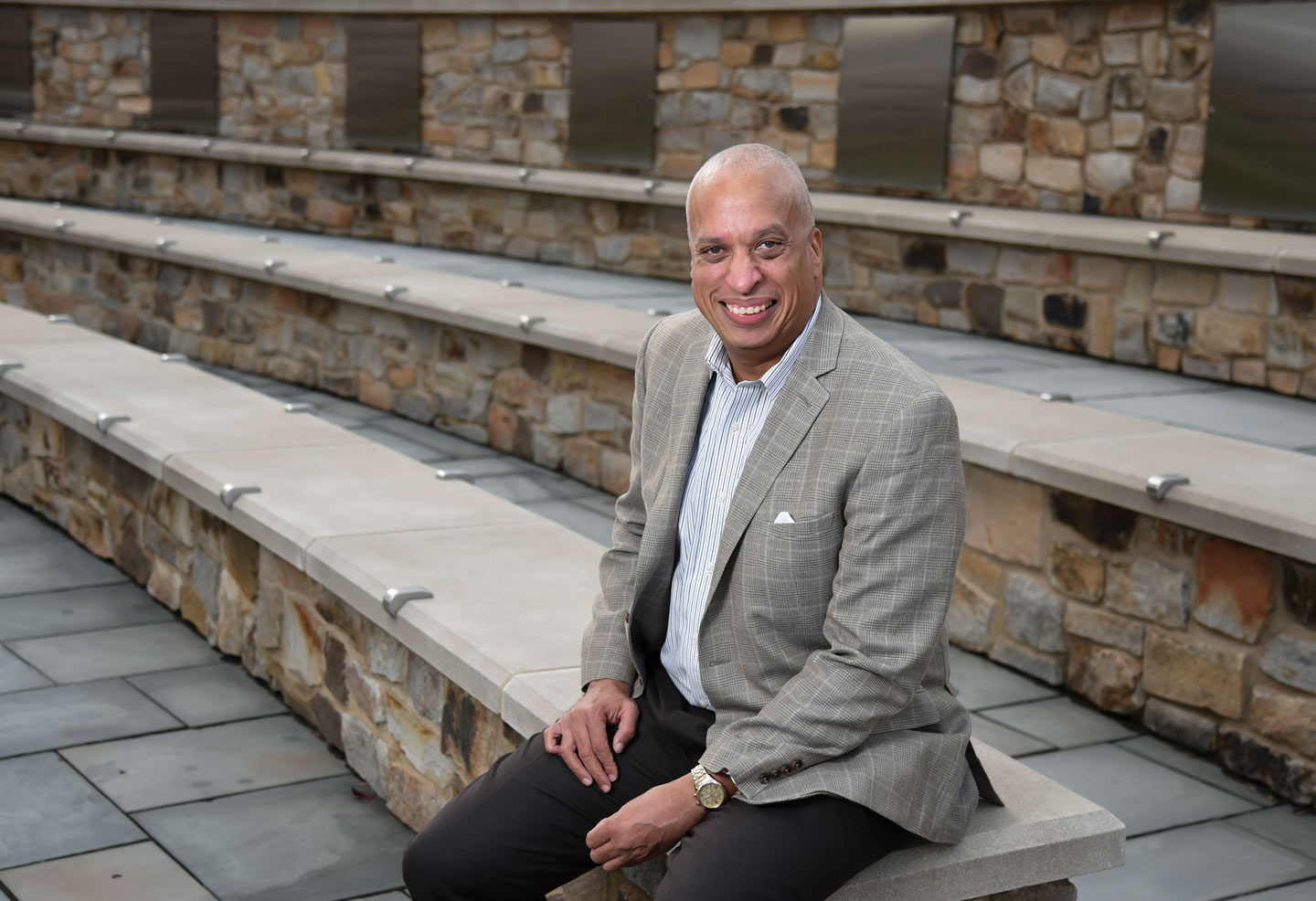
However, Davis, who rose from what he describes as a “rough side” of Washington, D.C., to leadership roles at Fortune 500 companies before launching his own successful business, is also committed to smoothing the path for future generations of Bucknell students.
A recent $5 million gift from Davis will be used for construction on campus and to support diversity initiatives, which are close to Davis’ heart.
“My freshman roommate and I were two of only perhaps six African-American electrical engineering majors who graduated from Bucknell over a 10-year period,” recalls Davis, who, with a partner, started the Birmingham, Ala.-based Horizon Group in 2001. “My first two years at Bucknell were very challenging but very rewarding. The attrition rate for engineers overall was significant. I was one of the few people who stuck with it.”
Davis, a former member of the Alumni Association Board of Directors, adds that he fell in love with the University at first sight. “I remember coming up the highway and seeing the campus,” he says. “I thought, this is my idea of going to college.”
Bucknell will recognize Davis’ generosity by naming a section of the South Campus Apartments for him. Davis Hall adjoins a wall displaying the University’s Solidarity Creed and houses the Muslim Prayer Room, created in 2017 to provide a dedicated gathering space for members of Bucknell’s Muslim community.
Davis notes that Bucknell has a long tradition of holding progressive attitudes toward integration on campus. Referencing the University’s first African-American graduate, Edward McKnight Brawley, Class of 1875, Davis says, “He graduated almost 100 years before many other institutions in the United States grudgingly decided to admit students of color. Through it all, Bucknell did the right thing.” He says his gift is designed to continue that legacy of inclusion.
“I want to send a message that we need to embrace and rejoice in our diversity — and to say thank you to the University and the people who made me what I am today,” he explains. “I also want people to look back someday and say, ‘He left the University a better place than when he arrived.’ ”